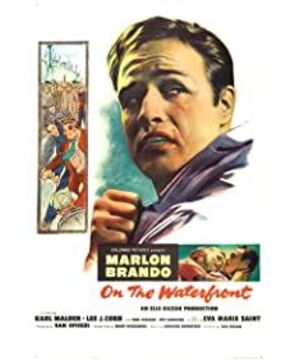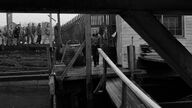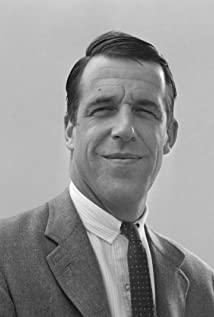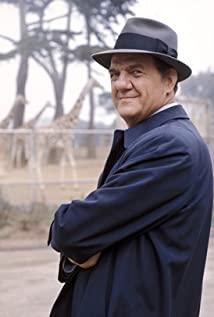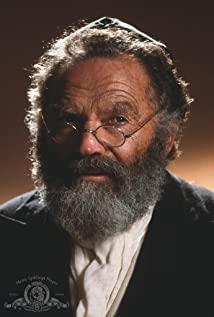The chairman of the trade union, Flenderley, monopolized everything at the wharf where Terry was located. He started out in the rough, and acted ruthlessly. However, Flandley knew how to buy people's hearts. He used both favor and power to clean up the entire pier obediently. Anyone who opposed it would never see the sun the next day. At the beginning of the film, the murdered docker Joey is evidence. But Joey's sister, Edie, a highly educated New Age woman, didn't give in. After witnessing the tragic life of the dockworkers, Eti joined the local parish priest, Father Barry, to seek justice for the dockworkers. Eddie's father, after learning of her thoughts, did not support her thoughts, and instructed her to get away from all this as soon as possible, complete her studies, and get rid of this poverty and suffering. However, Eti, who has been baptized by democratic education at the university, was not deterred by difficulties and continued to fight relentlessly. And with the help of the priest, he quickly found a breakthrough, and Eti's persistence and beauty also caught Terry's attention. Terry looks like a rebellious lone wolf, but he really longs for family and love in his heart. He is an orphan and has lived with his brother since childhood. His childhood experiences made him rebellious, and he felt that his brother Charlie was the only person he could rely on. The two brothers had a very harmonious relationship and could give everything for each other. The director made him fall in love with Edie here, and the setting of this character shows Terry's yearning for a new life. An illiterate working coolie fell in love with an intellectual college student, which paved the way for him to represent the working class to fight against the dark trade unions. After all, behind every successful man, there is a good helper.
Movies always like to use some character relationships full of ethical and moral shocks as a flashpoint for movie conflicts. After listening to the priest's encouragement, Nolan, a dock worker, wanted to expose some shady stories, but was soon noticed by the union president and was silenced. His tragic death became the fuse for the dock workers to rise up to resist. After witnessing the heinous behavior of the dockers, Terry confessed the truth of her brother's death to Edith and hesitated to attend the court hearing. . After witnessing Terry's potential mutiny, the union's president, Flandley, asked Charlie to solve the problem. The director is here, why did he set it up like this? This is not only to express the madness of the gangster, but also to play a foreshadowing role in Charlie's whitewashing. At this point in the development of the film, Charlie has become a stumbling block for Terry and Edie, so he must find an opportunity to remove the stumbling block. Instead of turning the Terry brothers against each other, it is better to let Charlie die to protect the family. This kind of setting can solve the problem between Terry and Etty, and can strengthen Terry's determination to fight, so Charlie can only choose to sacrifice himself and fulfill Terry here. After learning of his brother's death, Terry, like a wounded beast, seeks revenge. Fortunately, the priest arrived in time and gave him the right way to use the law to fight for fairness and justice for himself, for the people who were killed, and for the vast number of toiling dock workers. This was a warning to the traditional idea of fighting violence with violence and fighting back fire with fire in America, which was a sturdy country at that time. For such a group of white people with guns but not high culture, a relatively low sacrifice road.
Power still exists, and workers' lives have not improved significantly. After appearing in court, Terry did not get more recognition, but was ostracized by the people around him, because in the eyes of the people around him, he was a whistleblower. Sympathy and affirmation. At the end of the film, Terry's head-to-head contest with Flandley made the film reach its climax. After the brave Terry fell again and again, the workers united unprecedentedly, and they finally had the courage to say to the union " No" anymore. The film finally adopts an open ending, which may be the director's distrust, or even hostility, towards the radical labor movement, superior organizations or individuals. After all, in the face of power and status, people's expansion is inevitable. Especially in the film, Terry, played by Malay Bai Longdu, who came from the bottom, relied on inciting the resistance movement of the working people, and finally used public opinion to bring the country into the abyss, is everywhere in human history. The director is using an open ending, which is also a metaphor for the ultimate failure of this radical grassroots revolutionary or a dictatorial kleptocrat. Such as Napoleon, such as Hitler. At a certain point in history, they were both national heroes and national greats, but the final outcome was a sigh of relief.
When people talk about "The Wharf", they are more likely to think of Marlon Brando. This veteran Hollywood actor won his first Oscar for leading actor in his life because of his intense performance in this film. The film was released in the United States in 1954. At that time, our neighbors on the other side of the ocean were not as strong as they are now. At that time, European and American countries felt fear of the bloodshed brought about by radical social changes. If you look at "The Wharf" from this perspective, it is not difficult to see the intentions of the filmmakers. The director hopes that the movement of workers to seek their own welfare can be a moderate and orderly social reform movement led by the Christian Democrats. The Christian Democrats quickly gained leadership in Western European society after World War II because of this milder social reformism and its own advocates of human rights and equality. This is of course also at the behest of the US government. After all, after experiencing such radical reforms as fascism, the people of the world know how valuable compromise and political normalization are. Therefore, the dock union is portrayed as a gangster organization colluding with the government and businessmen. It is this union that represents the unscrupulous capitalists and privileged classes who hinder the rights and interests of workers. This kind of trade-off of abandoning the soldier to protect the car has brought the conflicting focus of workers' treatment to some unscrupulous capitalists. In the end, the state came out to punish this kind of behavior, punished gangsters and corrupt officials, returned justice to the workers, and gave workers a welfare society. This kind of setting is a bit similar to ancient China where corrupt officials were bad, and the emperor was always a wise routine. American movies are originally controlled by a group of capital predators, and the state then uses the model of controlling capital predators to achieve the government's strategy of controlling the mainstream American film market. Reusing the Oscars best, the power of this role model, will drive filmmakers to play by their rules in order to get more box office and prestige. American movies, as an important carrier for the United States to export its own culture and values. Its techniques and routines are very worthy of study and study in a country like us that urgently needs to export its universal values.
View more about On the Waterfront reviews


